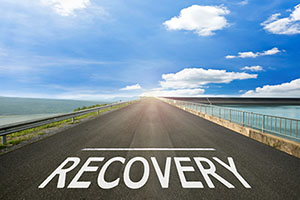I rather foolishly thought that I would be able to race again this weekend and won’t lie actually felt guilty at deciding to pull out. I was really keen to do it as its my local race, I know all the trails like the back of my hand and thought it would be great for ‘business’ if I could come out with a good result. As this week progressed it become clear that Im just going to have to jog around this and then by Wednesday I had to face facts that my body (and mind) were still a bit sore and after 60 mins worth of running I was ready to stop. And after one climb of 1, 00ft, which is a daily staple for me, my calves felt like they were going to explode. I still was thinking I can do this. But after lengthy chats with Coach Jayson and being totally honest with myself Im not ready to toe a start line again. And lets be honest Ive never run an ‘easy’ race in my life, its just not in my make up. If Im on a start line Im there to do my best, I know I wouldn’t be happy to jog it in. I am always telling clients that a lot of my job is to look at the ‘bigger picture’ whilst they focus on the detail of the day in day out training. So I have had to do the same for myself. I have to be realistic with my energy expenditure and my ability to recover whilst having 3 kids under 6 who are currently enjoying a 9 week summer holiday! So I’ve taken a bit of a disappointment pill, but in the long term its the right decision as I have one more exciting race plan for this year so the sooner I get stuck into that the better.
This got me thinking about why I felt I needed to race again so soon (no doubt from a disappointing race result, wanting to prove something to myself), but always to remind myself of the damage of running an ultra can do to your body and the respect you need to show this. There is no doubt that we put so much effort into training plans and then just expect to bounce back after wards straight into the next training block often getting frustrated that we still feel tired, are still sore, are mentally just not able to cope with everyday life and a new training block. Social media plays a big part in the pressure to return to running and entering the next race. Having the strength to say, ‘No actually I still feel tired, I need more recovery’ is a way more powerful and useful tool in your long term career as an athlete than posting you are back out there and feeling great ( a lie I bet anyway!). If you dont know what happens to your body after a long run effort, take the time to educate yourself. I do believe knowledge is power and if you understand WHY you still feel a bit crap or WHY you shouldnt be pushing yourself past 75 mins whilst still recovering you are way better informed to look after yourself.
The initial soreness is a great indicator of the damage occurred in your muscles, once this fades it is easy to think this time to start training again, especially as you probably hit the ‘post ultra’ blues (which is a ‘real’ feeling as we face a huge drop in our amino acid pool and the body works hard to bring up our levels of the happy hormone ‘serotonin.’ ) but your whole hormonal system will still be out of whack. Night sweats, loss of appetite, broken sleep, inability to concentrate, lack of motivation are all signs your body is still tired. My big inidicator is always my ability to just ‘cope’ with real life. do I have the resilience to look after the kids, work, hold an adult conversation, stay up later than 7pm. Till I can do all this without needing a nap or having a little daily cry becuase Im so tired I know I am not ready to face a training plan again.
This article http://www.irunfar.com/2016/10/do-you-really-have-adrenal-fatigue.html
somes up the post ultra haze really well. Its quite science based, but I bet this quote rings true with many of you who have pushed yourself to the limits;
Changes in neurotransmitter levels also accompany a big event. In some ways, running an ultra is like using the drug Ecstasy, at least in terms of changes in brain neurochemistry. Don’t things like euphoria, increased sociability, increased feelings of closeness with others, a sense of inner peace, mild hallucinations, enhanced sensations, or an altered sense of time remind you of things you have felt during an ultra? But that is actually a list of Ecstasy effects! Both hard physical activity and Ecstasy cause increased levels and decreased re-uptake of serotonin, dopamine, and norepinephrine in the brain. Ecstasy is often associated with a post-use ‘haze’ consisting of depression, tiredness, lethargy, irritability, and loss of focus that can last for two weeks or more (“the Molly hangover”) while the brain neurotransmitters re-balance. It makes sense that a similar haze would result after a hard physical effort as well.
So, in short. Recovery is individual. We can do lots to help ourselves to recover quicker, but remenber the muscles healing are just the first step. You cant rush recovery. You can help your recovery, but cutting your body some slack and listening to its cues are the best recovery tonic you can take. Anyone that questions your lack of willingness to jump straight back on the trail shove some science in their face. Take a big pill of relax, go out, eat a burger, dance with friends, lie in bed, offer to do a few chores, go for a bike ride, have a massage, drink beer, stay up late, do some light strength work, talk to friends about anything apart from running. Most of all take some time. Stay active but slow. And be confident that all this resting is really just training in disguise, allowing your body to recover into a better, stronger you.



Awesome post Edwina, very informative and useful. Hope you’re recovering well now and well done on been the stronger person, acknowledging what your body needs, Jayson will be proud I’m sure 🙂